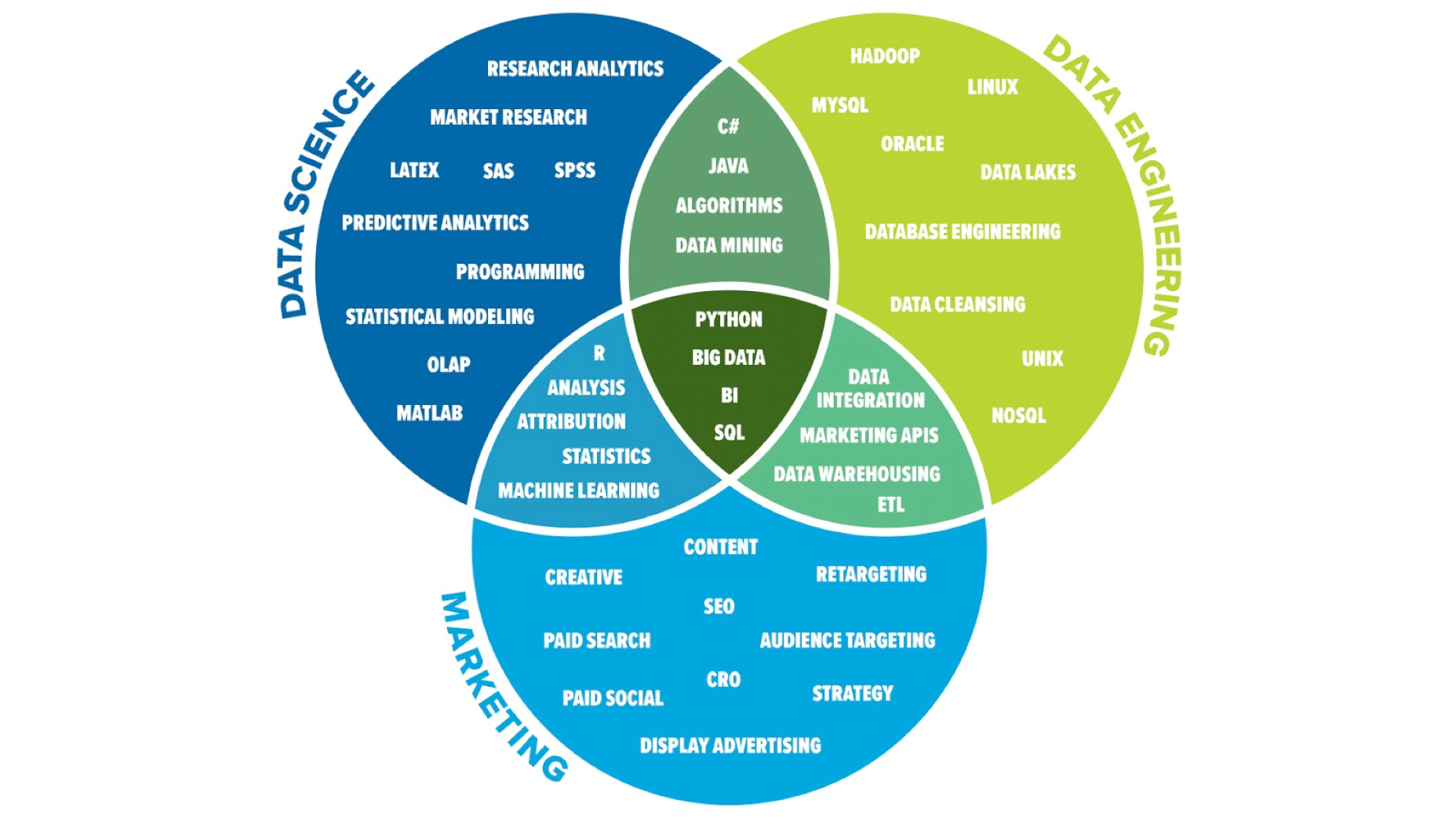
Until recently, the advertising/marketing world was dominated by creative giants who ruled the roost. Brilliant, Don Draper-inspired mad(wo)men who set the tone for a marketing universe in which great creative trumped all. To reach customers and prospects, brands relied on bold concepts, storyboarded to “break through the clutter,” connect people with brands, and (hopefully) get people to buy stuff.
Channels were, for the most part, traditional. Targeting typically driven by broad demographics (age, gender, income, etc) and geos. Measurement was important, but rudimentary by today’s standards.
Suddenly, and with little fanfare, the marketing universe was turned on its head with a digital revolution only a few innovators truly foresaw. A new type of powerbroker quietly gained a foothold in the marketing industry – the data-driven marketing pro.
What does the shifting landscape mean for marketing professionals? Are we in a “learn new skills or risk obsolescence” era? Have the Don Drapers of the world become dinosaurs? What marketing skills will be most valuable moving forward?
These questions plague today’s marketers as they venture into somewhat uncharted territory.
Skills evolution for a marketing revolution
Over the past few years, digital marketing has seen some crazy growth. Brands and agencies clamor for the latest middleware with the hope of bolstering capabilities and performance. However, tech adoption isn’t the only movement at play. Process adaptation is forcing marketing organizations to demand new skills.
Let’s examine the types of data-oriented skills being introduced into marketing. By understanding the forces at play, marketers can better align the cross-discipline skills required for great performance marketing.
The early digital marketer’s primary duties
By its nature, digital marketing is highly data-driven. Initially, though, site traffic data and correlation to revenue (outside of eCommerce) was still anecdotal in many cases, particularly in long sales cycle B2B engagements. It was difficult to measure how targeting contributed to business closed and won (and the value). Attribution remains an elusive beast for many organizations to this day.
Digital marketers had the unique opportunity to build entirely new attribution models. As channels evolved seemingly at light speed, attribution models emerged, morphed and evolved. Old school marketers were left scratching their heads.
Good news — rapid advances in tech continue to close the gap on attribution between online activity and offline revenue or pipeline data, and more standardized models emerged. Innovative marketers across disciplines began to see bold opportunity for highly attributable performance marketing.
Data science vs. data engineering
Despite being in its infancy, digital marketing has already created massive opportunities for data experts to gain a more relevant seat at the CMO’s table. New types of roles, such as Data Science or Data Engineering can seem threatening to the powerbrokers of old.
We all benefit when everyone in marketing understands the emerging roles. So let’s put some definition to Data Science vs Data Engineering. At the highest level, Data Engineers are the architects behind databases and expansive processing systems. They also are responsible for maintaining these systems. Data Scientists, on the other hand are responsible for cleaning, organizing, analyzing and articulating the overarching story behind the data.
Both are responsible for making data relevant to the entire marketing organization.
Data Engineer: While these professionals evaluate, develop, manage and test data solutions, they are also typically the first to cleanse raw data. Experienced with Hadoop-based technologies, they are often called on to build out robust, extensive data processing systems. They don’t shy away from complex extract, transform, load (ETL) workflows.
Data Science: Although differences between these roles will vary by organizations, think of data science more in terms of visualization of what the data means. The ability to create and communicate a narrative and story behind the data sets the role apart. They are often responsible for feeding data into analytics, machine learning and statistical modeling software for predictive modeling purposes. Plus, SOMEONE needs to make sure the CMO understands all that data!
There is a lot of overlap between engineer and scientist in terms of data mining, algorithms, unification and cleansing of data all to provide essential business insights. This is highlighted in the diagram below.
It’s no surprise we see these particular skill sets merging within marketing teams. Having these capabilities in close proximity is necessary for marketers as their efforts come under more scrutiny to show value quantitatively to the business. Marketing channel API integrations, data warehousing, SQL, business intelligence, statistics, Python, R, and machine learning are few key areas of overlap.
Marketers of all stripes are well advised to learn aspects of the now-influential role of data pros. We’re not saying the content developer needs to understand the inner workings of Hadoop, how to cleanse data or become expert in predictive analytics. We ARE saying the more marketing pros from each discipline understand interdependencies and HOW each discipline contributes to success, the better the marketing team will be overall.
Embrace the Shift & Improve Business Outcomes
While some old school marketers lament what they perceive as the end of the “Madmen era,” the truth is creative will always differentiate. However, subjectivity about creative has been essentially removed and those amazing off-the-wall ideas live or die, in large part, according to their metric-based merits. The data-centric marketer has earned her seat at the table alongside a new generation of Draper-inspired creative minds.
Whether a marketer comes from the creative side of the house or lives and breathes in data warehouses, it’s crucial for every marketer to develop as a right-and-left-brain thinker. Power and influence is shifting, but that’s a good thing. It opens doors for today’s marketers to take the industry to new places the Madmen and women couldn’t even imagine.
Aimclear® Blog



No comments:
Post a Comment